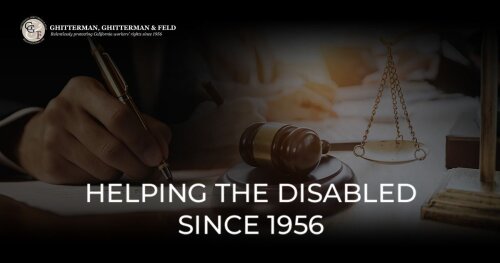Best Bad Faith Insurance Lawyers in Vermont
Share your needs with us, get contacted by law firms.
Free. Takes 2 min.
Or refine your search by selecting a city:
List of the best lawyers in Vermont, United States
About Bad Faith Insurance Law in Vermont, United States
Bad faith insurance law in Vermont centers on the principle that insurance companies must treat policyholders fairly and uphold their obligations as stated in the insurance contract. When an insurer unreasonably denies a legitimate claim, delays payment, fails to investigate properly, or otherwise puts its interests ahead of the policyholder’s, it may be acting in “bad faith.” Vermont recognizes the concept of bad faith insurance, which can give policyholders the right to pursue legal action against their insurer for unjust practices. This area of law is vital for protecting consumers and ensuring insurance companies act responsibly and in line with their contractual and statutory duties.
Why You May Need a Lawyer
Many people encounter challenges when dealing with insurance companies after making a claim. Situations where you might require legal assistance regarding bad faith insurance in Vermont include:
- Unreasonable denial of a legitimate claim
- Unjustified delays in processing or paying your claim
- Insufficient or deceptive explanations for claim denials
- Refusal to conduct a thorough and timely investigation into your claim
- Unsafe settlement offers that are far below what is owed
- Threats or coercive tactics aimed at pressuring you to accept unfavorable terms
- Retaliation for filing a claim or complaint
An experienced attorney can help interpret the insurance policy, communicate with the insurer, gather evidence, and, if necessary, represent you in court to secure the benefits and compensation you deserve.
Local Laws Overview
Vermont law requires insurance companies to act in good faith when handling claims. The Vermont Consumer Protection Act, as well as specific insurance regulations overseen by the Vermont Department of Financial Regulation, set forth requirements for fair claims handling. Key aspects of Vermont's laws relevant to bad faith insurance include:
- Prohibition of unfair claims settlement practices, such as failing to promptly investigate or pay valid claims
- Requirement for insurers to provide timely, reasonable, and specific explanations for the denial of a claim
- Allowing consumers to pursue legal remedies, including damages, when an insurer acts in bad faith
- Empowerment of the Department of Financial Regulation to investigate and penalize insurers for repeated unfair practices
- Potential availability of additional damages, including attorney’s fees, if bad faith can be proven in court
Frequently Asked Questions
What is bad faith insurance?
Bad faith insurance occurs when an insurance company intentionally withholds benefits, fails to pay a legitimate claim, or otherwise does not fulfill its contractual or legal obligations to a policyholder.
How do I know if my insurer is acting in bad faith?
Signs include repeated delays, lack of communication, unreasonable denial of claims, or settlement offers that are far less than the claim’s worth. A pattern of unfair conduct often signals potential bad faith.
What steps should I take if I suspect bad faith?
Document all interactions with your insurer, keep a record of all correspondence, and contact an experienced insurance attorney to evaluate your situation.
Does Vermont law protect insurance policyholders?
Yes, Vermont has laws that require fair claims handling and provide remedies for policyholders harmed by an insurer's bad faith practices.
What kind of damages can I seek in a bad faith lawsuit in Vermont?
You can seek the amount owed under your policy, additional compensatory damages, and potentially attorney's fees. In egregious cases, punitive damages may be available.
How long do I have to file a bad faith claim in Vermont?
Claims are generally subject to a statute of limitations, which varies based on the nature of the insurance contract and specifics of the case. Consult an attorney promptly to avoid missing important deadlines.
Can I handle a bad faith claim without an attorney?
While it is possible, bad faith cases are complex and insurers have significant legal resources. Retaining an experienced lawyer maximizes your chances for a successful outcome.
What evidence is helpful for a bad faith insurance claim?
Provide written communication, records of phone calls, your insurance policy, claim materials, and a timeline of events. Any evidence showing unreasonable actions or delays by the insurer is valuable.
Can I report an insurer for unfair practices?
Yes, you can file a complaint with the Vermont Department of Financial Regulation, which investigates and acts on consumer complaints involving insurance companies.
Are there alternatives to going to court for bad faith claims?
Some disputes may be resolved through negotiation, mediation, or arbitration. However, legal action is sometimes necessary if the insurer refuses to act in good faith.
Additional Resources
- Vermont Department of Financial Regulation, Insurance Division
- Vermont Legal Aid
- National Association of Insurance Commissioners Consumer Resources
- Local Bar Association Referral Services (for attorney referrals)
- Consumer Protection Offices
Next Steps
If you believe your insurance company has acted in bad faith within Vermont, gather all relevant documents and correspondence related to your claim. Consider contacting a qualified attorney who specializes in insurance law for a thorough evaluation of your situation. You may also file a formal complaint with the Vermont Department of Financial Regulation. Legal professionals can guide you through the process, help you understand your rights, and advocate for fair treatment and compensation. Take timely action to preserve your rights and strengthen your case.
Lawzana helps you find the best lawyers and law firms in Vermont through a curated and pre-screened list of qualified legal professionals. Our platform offers rankings and detailed profiles of attorneys and law firms, allowing you to compare based on practice areas, including Bad Faith Insurance, experience, and client feedback.
Each profile includes a description of the firm's areas of practice, client reviews, team members and partners, year of establishment, spoken languages, office locations, contact information, social media presence, and any published articles or resources. Most firms on our platform speak English and are experienced in both local and international legal matters.
Get a quote from top-rated law firms in Vermont, United States — quickly, securely, and without unnecessary hassle.
Disclaimer:
The information provided on this page is for general informational purposes only and does not constitute legal advice. While we strive to ensure the accuracy and relevance of the content, legal information may change over time, and interpretations of the law can vary. You should always consult with a qualified legal professional for advice specific to your situation.
We disclaim all liability for actions taken or not taken based on the content of this page. If you believe any information is incorrect or outdated, please contact us, and we will review and update it where appropriate.
Browse bad faith insurance law firms by city in Vermont
Refine your search by selecting a city.










